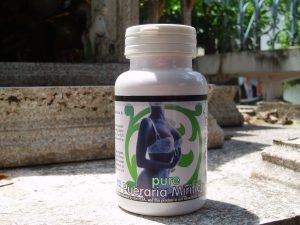If you feel like your consciousness is shifting, or you’re slipping into a dreamlike state, allow it to occur. Q. Oftentimes women may be able to feel an anxiety attack coming on. Q. Once a woman experiences an anxiety attack does this mean she will be more likely to experience them more often? Antioxidants are good for us because they help to capture the free radicals which attack our bodies every day. You will also likely be provided with information regarding a personalized exercise program, nutrition and lifestyle changes that can help improve your symptoms. Q. If increased anxiety is hormonally related, does that mean it will pass once a woman gets through menopause? What do you suggest for a woman who is feeling any one or a combination of these things? I’ve had at least one friend (who is not a doctor or in the health field at all) tell me that they think it’s psychological. After all, we’re raised to believe that doctor knows best. A. It is important that menopausal women identify the symptoms of anxiety they’re experiencing so they find the best ways to allay them.
We work with clients to figure out what works best for them. Menopause is not an event that typically comes out of the blue. When we perceive that we are under stress, our bodies send out a rush of cortisol, adrenaline, and other brain chemicals to prepare us to “fight” or “flee” the danger. The most recognizable changes are hot flashes, mood swings, and restless nights. Women report experiencing mood changes during perimenopause, including an increase in anxiety. When there is mood change, never bring topics that can ruin her day. Getting some exercise – This can help your body relax and serve as a stress-reliever. Getting enough sleep – Deep sleep is a natural relaxer. Combine those feelings with the overall fear of eventually getting anxiety, and it’s easy to see why this period can be so stressful. Regardless of why a woman’s body is changing during this period, it can bring about a significant amount of stress. The changes that come with menopause affect a woman’s life physically and emotionally. It is a natural and important part of any woman’s life.
It is an important part of natural healing and health. I do believe in a mind, body health connection. A. Yes, there is absolutely a connection between hormonal changes and psychiatric symptoms in general, and women undergoing specific hormonal changes have increased risk for particular psychiatric disorders. The problem is that we don’t have long-term data on catheter ablation in sick hearts. One that I have worked with that is based upon the approach we use in the UCLA Anxiety Disorders Clinic can be found at . One of the most commonly discussed are hot flashes. Yet hormones are not the only factor in that anxiety. In many cases, it may be impossible to know the exact cause, or which factor is playing the biggest role. Hot flashes are sudden periods of intense heat that may occur at any time, but often occur at night. In fact, we should embrace the roles that we are given in each stage of our life so when its puberty, we should embrace all the life changing developments and the hormonal changes that is happening. For example, women who suffer more physical symptoms, experience negative life events or who are less functional are more likely to develop an anxiety disorder during menopause than women without these additional stressors.
Perimenopause and menopause are substantial life events. There are now self-help versions of CBT available online which walk someone through the creation of a personalized treatment plan. That being said, panic attacks respond very well to a type of treatment called cognitive behavioral therapy (CBT); someone who gets into treatment may have very few or no panic attacks in the future. Most likely your GP may not have these immunizations available. Anxiety is extremely common during this time, and while some of the anxiety may be due to the changing hormones, there are other reasons as well. Are there different therapies for different types of anxiety and, if so, what are they (from a behavioral, medical and/or psychopharmacological and/or nutritional viewpoint)? Medical studies suggest that even under normal circumstances, women are twice as likely to experience anxiety as men. Although menopause-related hormonal disorders are quite common, the consensus is that one should let them be, allowing the body to heal them naturally. As I mentioned, CBT is one of the most effective treatments for anxiety. Some of the treatments are standard treatments, and some of them are currently being tested in clinical trials.
How are the two linked? That’s when I put two and two together and figured that this was far more than just anxiety. It may last from two to ten years. There may be a way for you to “turn back the clock” so to speak. It is an easy and fast way to promote self-healing. Or, is it the other way around: does menopause cause anxiety? Cognitive behavior therapy Cognitive Behavior Therapy (CBT) has been shown to be effective as a treatment for menopause. Because of the debates going on as to the nature of the disease and how it is contracted, treatment for it is also unclear. Women going through perimenopause often report body changes. This therapy helps women examine the connections between their feelings, thoughts, and behavior. By using Cognitive Behavior Therapy, women can learn how to modify their behavior to help reduce the severity of menopausal symptoms.



